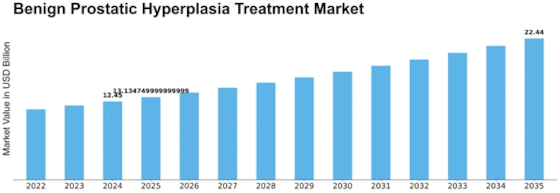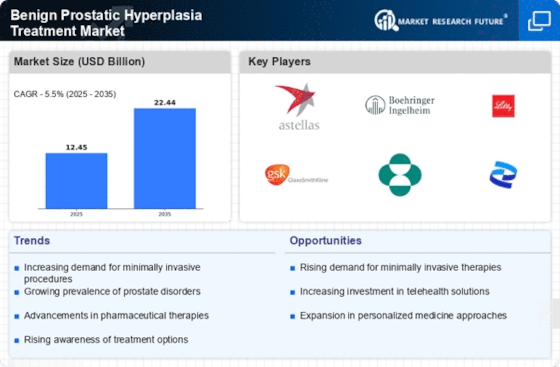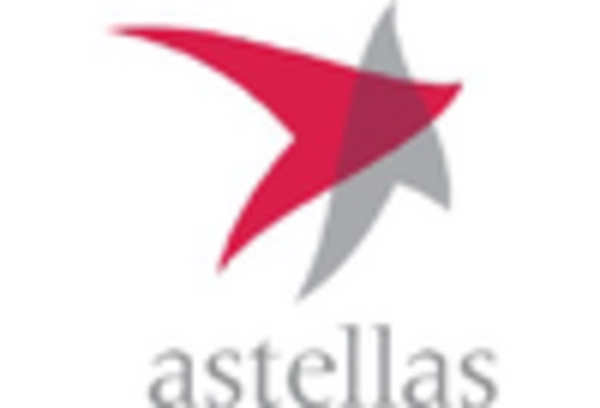Benign Prostatic Hyperplasia Treatment Size
Benign Prostatic Hyperplasia Treatment Market Growth Projections and Opportunities
The thriving commonness of benign prostatic hyperplasia (BPH), especially among maturing guys, and the requirement for viable treatment options are persuasive elements in the advancement of the BPH treatment market. A large number of remedial modalities, like negligibly obtrusive strategies, drugs, and careful intercessions, are accessible available to lighten side effects and work on the personal satisfaction for those impacted. The execution of automated helped mediations, laser treatment, transurethral microwave thermotherapy, and other mechanical advances in the treatment of BPH add to worked on quiet results, expanded market extension, and abbreviated recuperation periods. The market elements are significantly affected by the administrative climate, as thorough guidelines are set up to ensure the wellbeing, adequacy, and nature of treatment options for BPH. Guaranteeing consistence is critical with regards to entering the market and laying out certainty between medical services suppliers and patients. Reception of BPH medicines is impacted by repayment strategies, financial circumstances, and medical care foundation; subsequently, market members should fit their answers for address the particular difficulties of every medical care framework. Nonstop innovative work impels the market for BPH medicines, as organizations reliably foster novel meds and medicines to work on understanding cordial other options and keep a mechanical edge. The Coronavirus pandemic forestalled elective operations, which influenced the interest for BPH medicines. Flexibility of the medical care framework and affirmation of the market's basic nature, in any case, added to its recuperation and extension. Market advancement is impelled by associations among BPH treatment suppliers, drug organizations, and exploration associations. These coordinated efforts tackle different difficulties like the improvement of customized medicines, novel medication details, and careful procedures. The market for BPH medicines puts an exceptional on tolerant driven medical care, with an accentuation on diminished incidental effects, improved recuperation periods, and solace. This is reliable with the patient-focused worldview that supports contemporary medical care. The impact of cost-adequacy on the BPH market is developing significantly. There is tension on medical care frameworks overall to improve asset usage and decrease generally speaking therapy costs. Elective clinical methodologies, for example, negligibly obtrusive or short-term solutions for BPH, are appealing because of their expense adequacy in contrast with conventional careful techniques.



















Leave a Comment